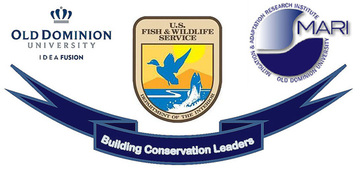Summer 2018: Sustainability Leadership
Class 3 (05/21/2018): Part 1: Decisions, biases, and the creation of knowledge. Part 2: Conceptual modelsPart 1: Decisions, biases, and the creation of knowledgeThe goal is to understand how world views of neighborhood, parents, schools, etc. create a very personal bias, community and cultural biases, and how these biases impact the reflections we have of the world, and how they often direct our decisions and even the creation of knowledge. With respect to personal bias, the aim is to understand how world views of neighborhood, parents, schools, etc. create a very personal bias. Our perceptions of reality are reflections of the “real world”, the thing by itself, and these reflections are impacted by individual, group, and cultural biases and preconceptions. The deviations of our reflections from the “thing itself” as well as our biases direct our deliberations, limit options for decision, and even guide the creation of knowledge. Particularly when dealing with complexity and threads, awareness of the own biases and those of others can help to reduce their impacts and open avenues to evidence-based deliberations and problem assessments. Realize that communities at different levels have biases in how they see the world inside and outside the cultural context. Biases are necessary to find a way to live in the complex world and to deal with knowledge gaps. There are many ways of living in the Earth's life-support system and many of them are sustainable - but many others are not. Cultural biases keep a society often from understanding the laws and messages of nature, and this can threaten the community. Biases also have a significant impact on how we see threats and what we consider hazards. Reading ListMandatory Readings: View: “How Not to Be Ignorant About the World” by Hans and Ola Rosling https://www.youtube.com/watch?v=Sm5xF-UYgdg Kolbert (2017) (Kolbert, E., 2017. Why Facts Don’t Change Our Minds - New discoveries about the human mind show the limitations of reason. The New Yorker) White (2011) (White, M. D., 2011. Why Did We Evolve the Ability to Reason? To Argue! The final step in human evolution is — the lawyer? Psychology Today) Lee and Lebowitz (2015). See http://www.businessinsider.com/cognitive-biases-that-affect-decisions-2015-8. See also the Wikipedia article on cognitive distortions. Additional Readings: Christian (2013) (Christian, S.E., 2013. Cognitive Biases and Errors as Cause - and Journalistic Best Practices as Effect, Journal of Mass Media Ethics, 28, 160—174, DOI: 10.1080/08900523.2013.794674) Hutson (2017) (Hutson, M., 2017. Living a Lie: We Deceive Ourselves to Better Deceive Others. Scientific American). Lukianoff and Haidt (2015) (Lukianoff, G. and Haidt, J., 2015. The Coddling of the American Mind. The Atlantic, September 2015) Jensen (2016) (Jensen, R., 2016. The coddling of the capitalist, white-supremacist, patriarchal american mind. Resilence.org). Part 2: Conceptual modelsThe students in each group will discuss their personal reflections of the challenge that their group is focusing on and analyze how their cognitive biases may impact these reflections. They will further detail the system each group is going to consider and define the issue that requires some form of adaptation. They will also discuss how cognitive biases might impact the reflections different stakeholder groups might have oef the issue. The students will develop conceptual models for each of the three challenges. At the end of the class, each group should have a sketch of the conceptual model for the system they are considering, as well as a refined goal statement and a detailed sketch ]of how different stakeholder groups are impacting the system. Reading List |
